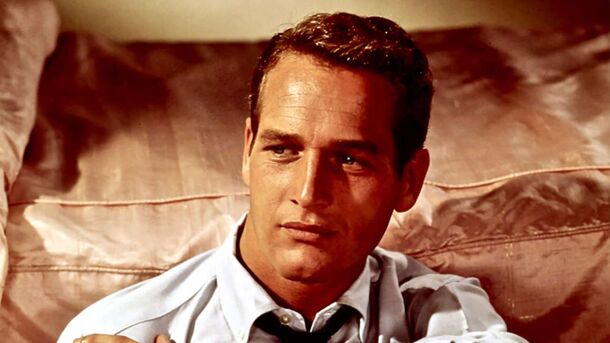The Paul Newman Classic He Called a "Junk Movie"

Paul Newman didn't do junk. At least, not usually.
Over a decades-long career packed with heavyweight performances—The Hustler, Cool Hand Luke, Butch Cassidy and the Sundance Kid, The Sting, Slapshot—he built a reputation for substance, not spectacle. But when he finally dipped a toe into the world of blockbuster disaster flicks, the result wasn't just another effects-driven cash grab—it was The Towering Inferno.
And somehow, even Newman's "junk movie " got nominated for Best Picture and won three Oscars.
Newman was famously self-critical when he felt the work didn't live up to his standards. This is the guy who once took out full-page ads urging people not to watch his first film ( The Silver Chalice) when it aired on TV. So when he admitted The Towering Inferno was "probably a junk movie," he wasn't putting on airs.
But then he added:
"It is a very distinguished junk movie."
By 1974, Newman knew exactly what kind of film he was signing up for. Tastes were changing, and audiences wanted spectacle. As he told The Atlantic:
"If you've been in the business as long as I have, the audience will simply not accept you in certain parts. People will not accept me with a black wig and a putty nose. That's not what they want to see."
And as for Inferno specifically, he said:
"There's an escapist kind of film which is very fashionable now. The Towering Inferno is a perfect example. I knew that the quicker I got off the screen and the stuntman got on, the quicker the picture would start rolling. I knew it was going to achieve what it wanted to achieve, and that is to frighten people. It dealt with height, which is very fearful, and fire. That combination in creating a danger movie is irresistible."
What Newman didn't mention was the off-screen inferno: his not-so-friendly rivalry with co-star Steve McQueen. The two spent much of the production in a silent war over top billing, screen time, and who got to save the most people. The result? A carefully negotiated tie: same number of lines, same screen time, split heroism. No one blinked.
Despite all that, The Towering Inferno ended up being one of the best disaster films of the era. It helped kick off the 1970s boom in star-studded catastrophe movies and proved that even when Newman signed onto a popcorn flick, it didn't come out half-baked.
Was it high art? No. Was it fun watching Paul Newman sprint around a burning skyscraper with McQueen while the building collapsed around them? Absolutely.
Newman might've called it junk—but only with a wink, and only after making sure it had style.